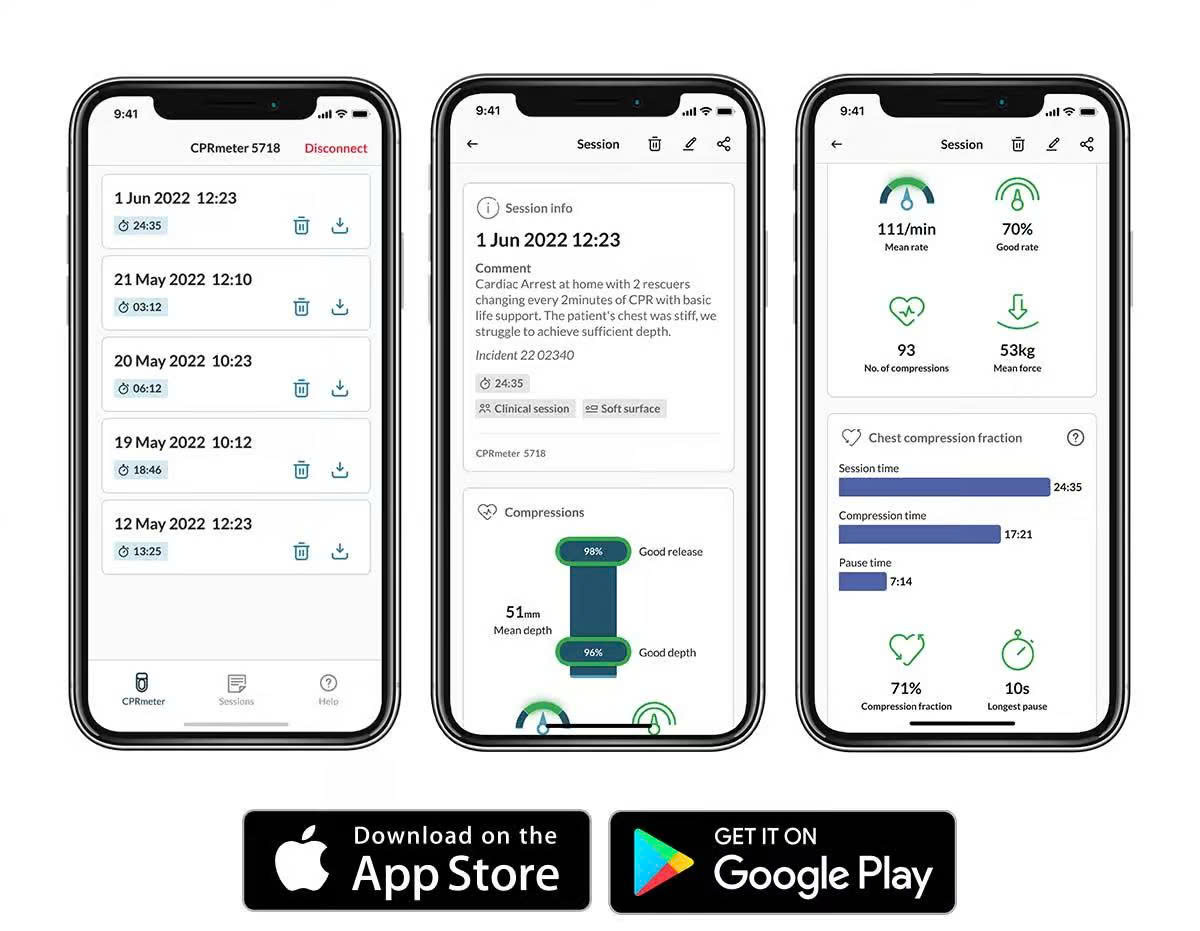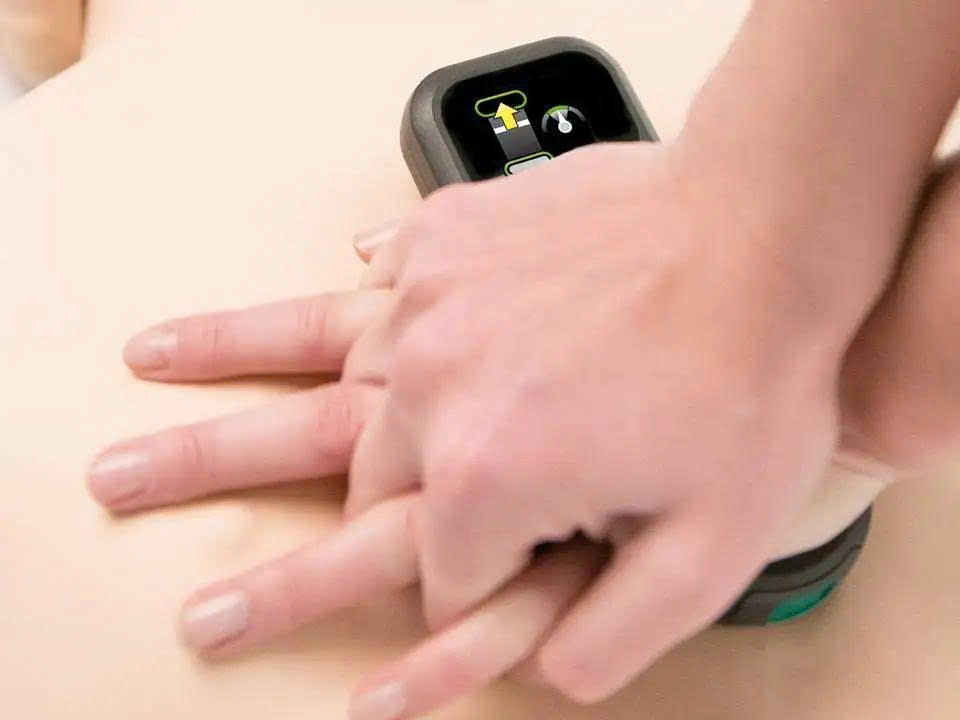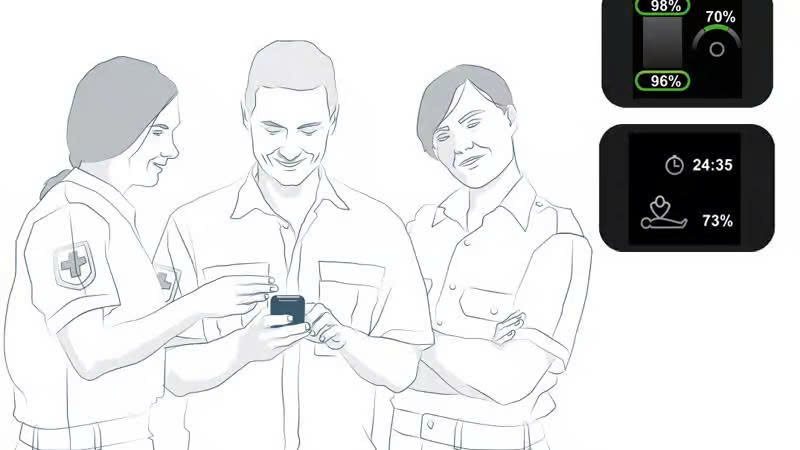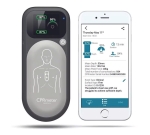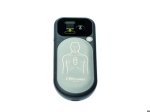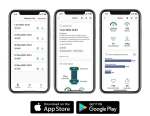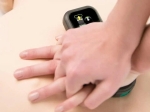Key Functions of the CPRmeter 2:
- Provides real-time feedback on:
- Compression depth (cm)
- Compression rate (compressions per minute)
- Chest recoil
- Compression count
- Records CPR performance data for post-event analysis.
- LCD display shows information clearly in numerical and graphical formats.
- Compact design allows the device to be attached directly to the patient’s chest.
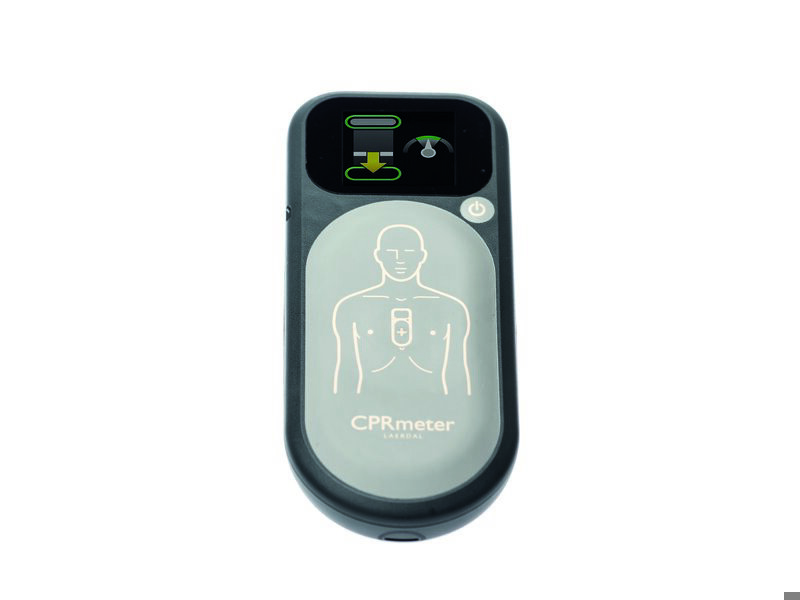
Clinical Benefits:
- The CPRmeter 2, integrated with Q-CPR® technology, provides real-time guidance and summative feedback, helping rescuers optimize the effectiveness of chest compressions (CPR) in clinical settings. The CPRmeter App enables post-event review and allows sharing/exporting of performance data, supporting in-depth analysis of CPR quality and effectiveness.
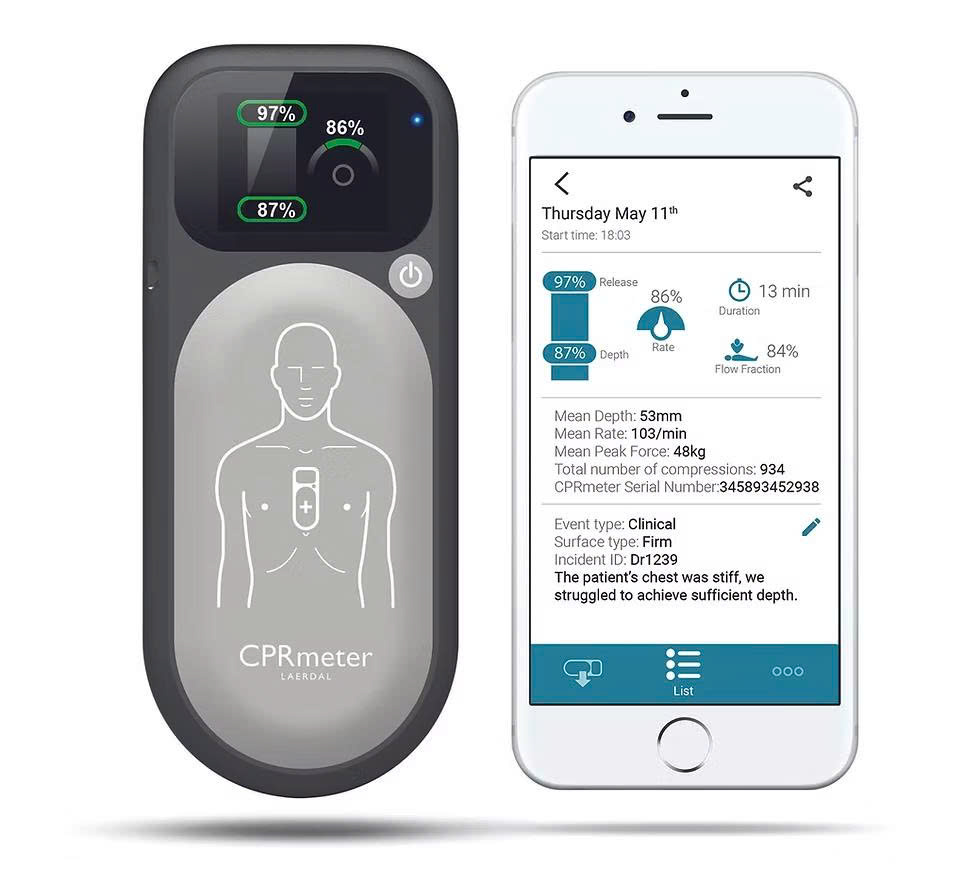
- Promotes consistent delivery of guideline-compliant CPR across all providers.
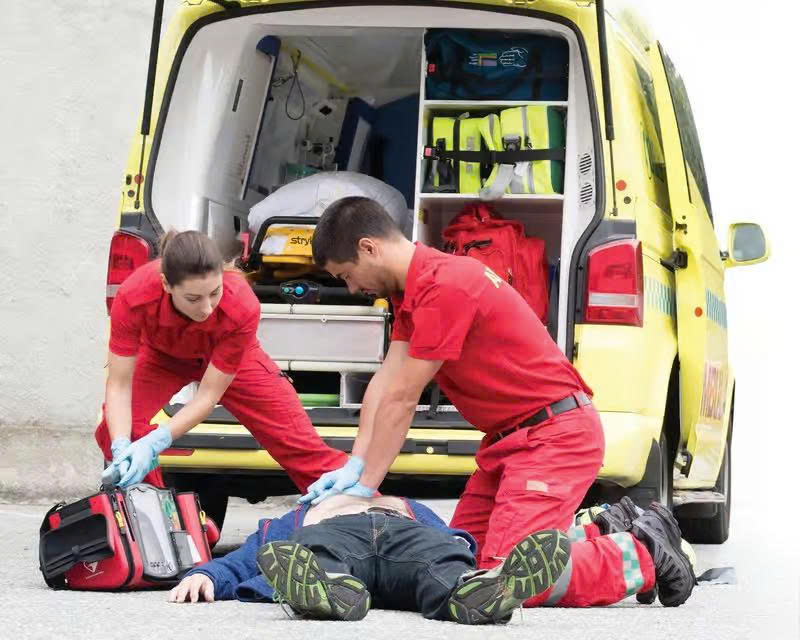
- Enhances patient outcomes by improving CPR performance and minimizing interruptions.
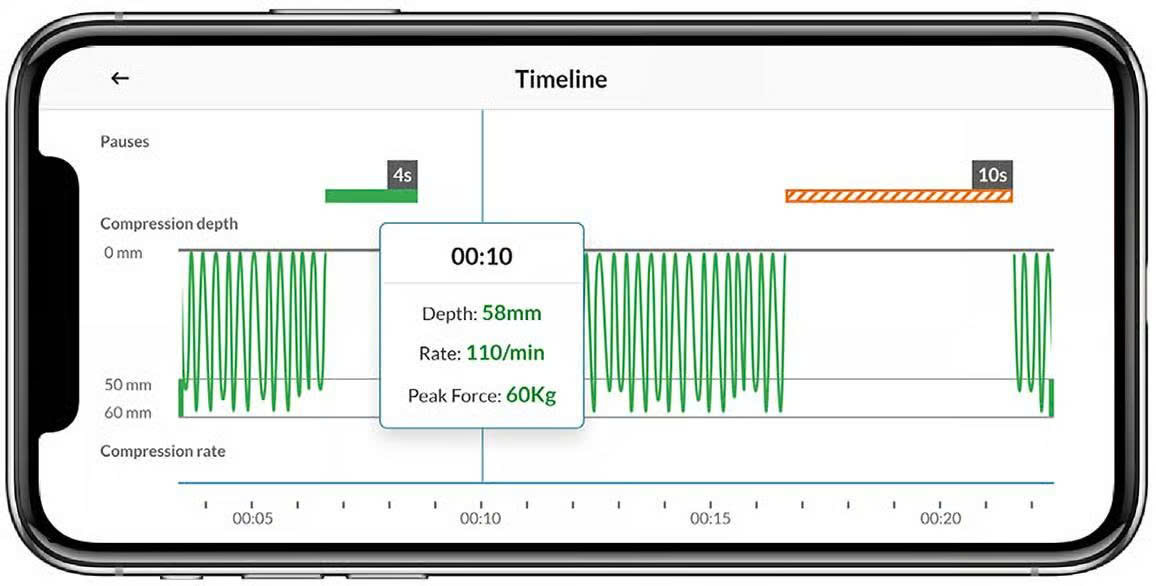
- Compact, easy to deploy, and attaches directly to the patient’s sternum during resuscitation efforts.
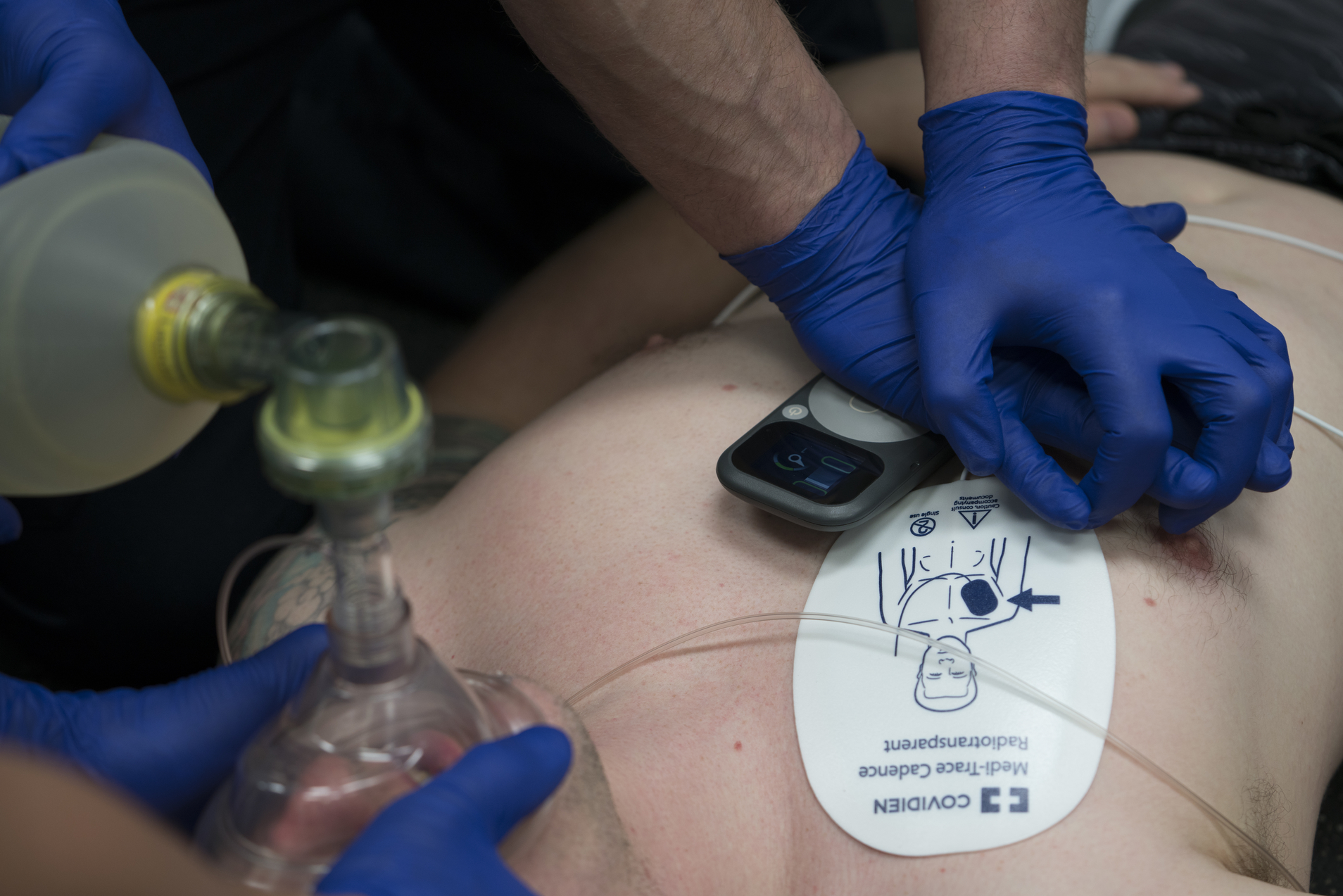
Applications:
✅ In Pre-hospital Emergency Care (EMS):
-
Provides instant feedback on compression depth, rate, and recoil with every chest compression.
-
Improves the quality of initial resuscitation, where rapid response time and CPR effectiveness are critical to patient outcomes.
-
Supports on-scene performance evaluation for both individuals and teams.
✅ In Hospital Settings (ED, ICU, Inpatient Units):
-
Used during Code Blue situations to monitor and enhance the effectiveness of bedside chest compressions.
-
Assists in collecting objective data during in-hospital cardiac arrest events.
✅ Training and Quality Improvement:
-
Functions as a simulation and training tool with real-time feedback for CPR performance.
-
Works in combination with the CPRmeter App to:
-
Aggregate post-event performance data
-
Review and assess CPR effectiveness
-
Export data for reporting and in-depth analysis
-
-
Supports the implementation of Continuous Quality Improvement (CQI) programs in resuscitation care
✅ Compatible with Training and Certification Programs:
-
BLS (Basic Life Support)
-
ACLS (Advanced Cardiovascular Life Support)
-
ILS / PALS / NRP and other advanced life support training programs
-




